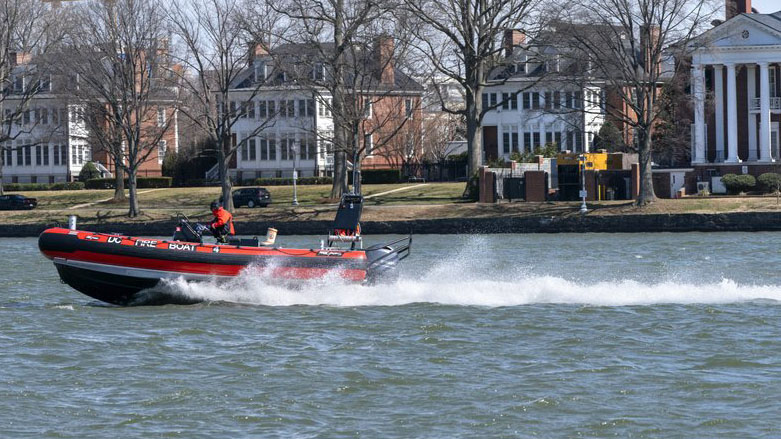AP sources: Iran threatens US Army post and top general

Iran has made threats against Fort McNair, an Army post in the US capital, and against the Army’s vice chief of staff, two senior US intelligence officials said.
They said communications intercepted by the National Security Agency in January showed that Iran’s Revolutionary Guard discussed mounting “USS Cole-style attacks” against the Army post, referring to the October 2000 suicide attack in which a small boat pulled up alongside the Navy destroyer in the Yemeni port of Aden and exploded, killing 17 sailors.
The intelligence also revealed threats to kill Gen. Joseph M. Martin and plans to infiltrate and surveil the installation, according to the officials, who were not authorized to publicly discuss national security matters and spoke on condition of anonymity. The Army post, one of the oldest in the country, is Martin's official residence.
The threats are one reason the Army has been pushing for more security around Fort McNair, which sits alongside Washington's bustling newly developed Waterfront District.
City leaders have been fighting the Army’s plan to add a buffer zone of about 250 feet to 500 feet (75 meters to 150 meters) from the shore of the Washington Channel, which would limit access to as much as half the width of the busy waterway running parallel to the Potomac River.
The Pentagon, National Security Council and NSA either did not reply or declined to comment when contacted by The Associated Press.
As District of Columbia officials have fought the enhanced security along the channel, the Army has offered only vague information about threats to the installation.
At a virtual meeting in January to discuss the proposed restrictions, Army Maj. Gen. Omar Jones, commander of the Military District of Washington, cited “credible and specific" threats against military leaders who live on the Army post. The only specific security threat he offered was about a swimmer who ended up on the installation and was arrested.
Del. Eleanor Holmes Norton, the district’s sole representative in Congress, was skeptical. “When it comes to swimmers, I’m sure that must be rare. Did he know where he was? Maybe he was just swimming and found his way to your shore?” she said.
Jones conceded that the swimmer was “not a great example there, but our most recent example” of a security breach.
He said the Army has increased patrols along the shoreline, erected more restricted area signs and placed cameras to monitor the Washington Channel.
Puzzled city officials and frustrated residents said the Army's request for the buffer zone was a government overreach of public waterways.
